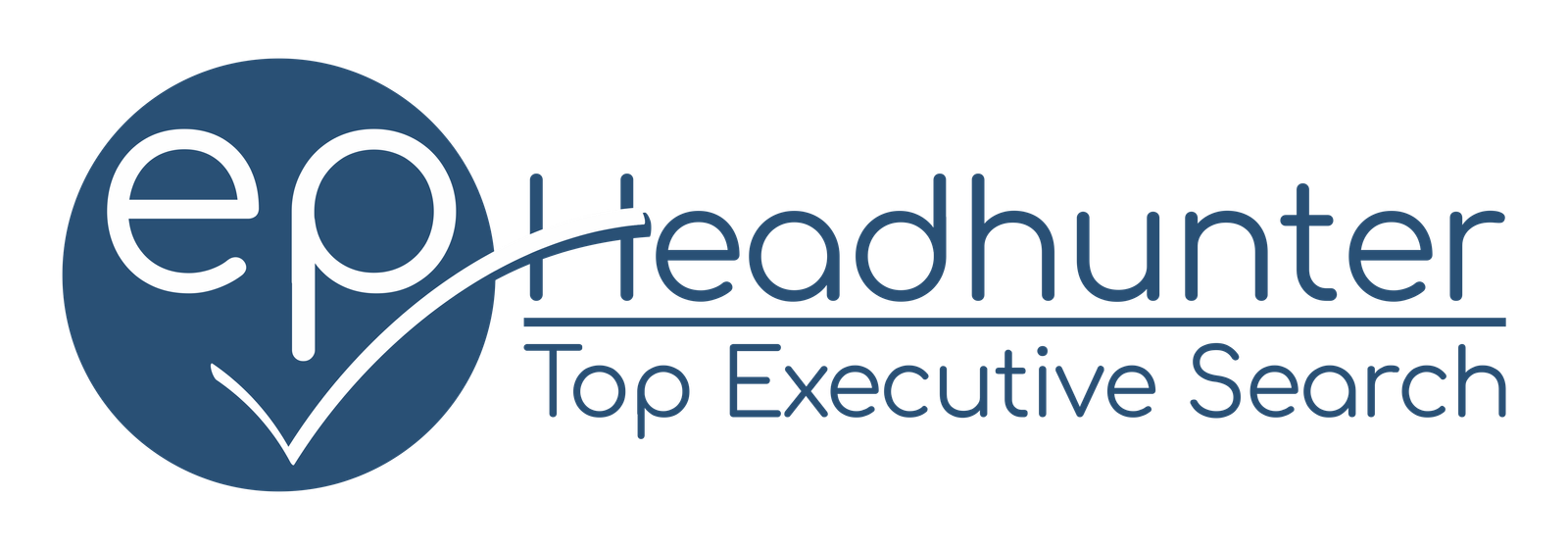Have you ever wondered why some professionals rise to the top while others struggle to climb the corporate ladder? The answer often lies in understanding the dynamics of fast-growing sectors like healthcare, technology, and financial services. These industries are not just expanding—they’re reshaping the landscape of leadership roles.
Recent data from the U. S. Bureau of Labor Statistics highlights a surge in demand for leadership roles in these areas. For example, healthcare and technology alone have seen significant growth in executive-level opportunities. This trend underscores the importance of strategic career planning and targeted job search strategies. As organizations across various sectors seek to navigate challenges and drive innovation, professionals with strong leadership capabilities are increasingly sought after. Consequently, areas like healthcare and technology have emerged as some of the fastestgrowing executive job markets, attracting talent with specialized skills. This shift not only emphasizes the need for continuous professional development but also encourages job seekers to focus on networking and skill enhancement to position themselves effectively in these competitive environments.
Securing a top position isn’t just about experience—it’s about aligning your skills with the needs of thriving industries. Whether you’re aiming for a role in a global company or exploring opportunities in Colombia’s emerging market, understanding these trends is crucial.
Key Takeaways
- Healthcare, technology, and financial services are driving demand for leadership roles.
- Strategic career planning is essential for climbing the corporate ladder.
- Tailored job search strategies increase your chances of success.
- Understanding industry trends helps you align your skills with market needs.
- Colombia’s emerging market offers unique opportunities for growth.
Navigating Colombia’s Executive Job Market Landscape
Navigating Colombia’s executive job market requires a blend of strategy and cultural insight. The country’s business environment is dynamic, with growing demand for skilled leaders across industries. Understanding regional trends and competitive dynamics is essential for success.

Effective search strategies are tailored to Colombia’s unique landscape. Networking remains a powerful tool, but modern search tools also play a crucial role. Combining traditional and digital approaches can help identify the right position.
Companies in Colombia seek candidates with strong leadership qualities and specific skills. Bilingual proficiency, adaptability, and cultural awareness are highly valued. These attributes align with the needs of both local and international firms operating in the region.
Leveraging professional networks and specialized recruiters can enhance your job search. Colombia’s workforce is highly skilled, with many professionals trained in technology, engineering, and business. This creates a competitive yet rewarding environment for top-tier candidates.
A strategic, skill-based approach is key to securing coveted roles. Focus on aligning your expertise with market demands. By doing so, you can position yourself as a strong contender in Colombia’s evolving executive job market.
Exploring Industry-Specific Executive Job Markets
In today’s competitive landscape, a well-crafted resume and strong network are essential for career advancement. Industries across the board are experiencing significant growth, creating a demand for skilled leaders who can navigate complex challenges.
Understanding the factors that drive hiring decisions is crucial. Companies are increasingly prioritizing candidates who demonstrate adaptability, cultural awareness, and technical expertise. These attributes are especially valuable in fast-evolving sectors like technology and healthcare.

Networking remains a cornerstone of career success. According to recent data, 70% of executives consider networking vital for uncovering hidden opportunities. Building meaningful professional relationships can open doors to roles that aren’t publicly advertised.
Updating your resume to reflect current trends is equally important. Highlighting achievements, certifications, and relevant skills can set you apart in a crowded job market. “A strong resume is your first impression—make it count,” says a seasoned recruiter.
Staying informed about industry trends is another key strategy. For example, the rise of remote work and digital transformation has reshaped hiring practices. Professionals who embrace continuous learning and upskilling are better positioned to thrive in this dynamic environment.
Finally, positioning yourself as a proactive leader is essential. Demonstrate your ability to drive growth and innovation. By aligning your skills with market demands, you can seize emerging opportunities and achieve long-term career success.
Key Sectors Driving Executive Hiring
The demand for leadership is reshaping industries globally, with specific sectors leading the charge. Healthcare, technology, and financial services are at the forefront, creating opportunities for professionals aiming for top-tier roles. Understanding these trends is essential for aligning your skills with market needs.

Healthcare: A Growing Legacy
Healthcare is experiencing rapid expansion, driven by aging demographics and regulatory changes. This sector is creating a surge in leadership opportunities, particularly in roles focused on innovation and compliance. Professionals with expertise in healthcare management and policy are in high demand.
Key areas of growth include hospital administration, biotechnology, and telehealth. “The healthcare sector is not just growing—it’s transforming,” says a leading industry expert. Candidates who combine technical knowledge with strategic vision are well-positioned to excel.
Technology: Innovation in Leadership
Technology continues to redefine leadership, with roles like Chief Technology Officer (CTO) and Chief Information Officer (CIO) gaining prominence. Companies are prioritizing leaders who can navigate AI, cybersecurity, and digital transformation.
Emerging technologies are creating new challenges and opportunities. Executives who can drive innovation while managing risks are highly sought after. This sector rewards adaptability and technical expertise, making it a prime area for career growth.
Financial Services: Steering Corporate Success
Financial services remain a cornerstone of corporate governance, with executives playing a critical role in managing finances and mitigating risks. This sector values leaders who can navigate complex regulatory environments and drive sustainable growth.
Key responsibilities include strategic planning, risk management, and compliance. Professionals with a strong understanding of global markets and financial regulations are in high demand. This sector offers stability and growth for those with the right skill set.
| Sector | Key Trends | In-Demand Roles |
|---|---|---|
| Healthcare | Aging demographics, regulatory changes | Hospital Administrator, Biotech Leader |
| Technology | AI, cybersecurity, digital transformation | CTO, CIO |
| Financial Services | Risk management, compliance, strategic planning | CFO, Risk Manager |
These sectors set the benchmark for high-level roles, offering diverse opportunities for professionals. By aligning your skills with these trends, you can position yourself for long-term success in the evolving job market.
Emerging Executive Opportunities in Colombia
Colombia is emerging as a hub for innovative leadership roles in sustainable industries. The global push toward renewable energy and waste management is reshaping the country’s business landscape. These sectors are not only addressing environmental challenges but also creating high-demand roles for skilled professionals.

Renewable Energy and Sustainability
The renewable energy sector is booming in Colombia, driven by the country’s commitment to clean technology. Leaders in this field are tasked with developing strategies to harness solar, wind, and hydroelectric power. “Sustainability is no longer a choice—it’s a necessity,” says a leading expert in the field.
Key roles include sustainability managers, energy consultants, and project directors. These positions require a blend of technical expertise and strategic vision. Candidates with experience in environmental management are particularly well-suited for these opportunities.
Revolutionizing Waste Management
Waste management is undergoing a transformation, with innovative solutions like recycling and waste-to-energy technologies gaining traction. Companies are seeking leaders who can implement sustainable practices and drive efficiency.
Roles such as waste management directors and environmental compliance officers are in high demand. These positions require a deep understanding of regulatory frameworks and operational best practices. Professionals who can balance sustainability with profitability are highly valued.
| Sector | Key Trends | In-Demand Roles |
|---|---|---|
| Renewable Energy | Clean technology, solar/wind energy | Sustainability Manager, Energy Consultant |
| Waste Management | Recycling, waste-to-energy | Waste Management Director, Compliance Officer |
For candidates looking to break into these sectors, here are a few tips:
- Stay updated on the latest trends and technologies.
- Highlight relevant skills and certifications on your resume.
- Network with professionals in the sustainability field.
- Target companies that prioritize environmental responsibility.
These strategies can help you stand out in a competitive market.
The demand for leaders in renewable energy and waste management is a clear trend shaping Colombia’s business landscape. By aligning your skills with these emerging opportunities, you can position yourself for long-term success.
Harnessing Technology and AI in Recruitment
The integration of technology and AI is revolutionizing the recruitment process, making it more efficient and data-driven. As employers increasingly rely on AI for screening and video interviews, candidates must adapt their resumes and online profiles to meet the criteria of applicant tracking systems (ATS).
In this rapidly evolving field, staying ahead means understanding how to optimize your digital presence and align with AI-driven hiring practices. Let’s explore how you can enhance your ability to stand out in this competitive landscape.
Optimizing Your Digital Footprint Beyond LinkedIn
While LinkedIn remains a key platform for professional networking, expanding your digital footprint across multiple channels is essential. Utilize professional forums, industry-specific websites, and social media platforms to showcase your expertise.
Maintaining a consistent and professional online presence across these platforms can significantly boost your visibility. “Your digital footprint is your first impression in the virtual world,” says a recruitment expert.
Regularly update your profiles with relevant keywords and achievements. This ensures that your digital presence aligns with the sector you’re targeting and increases your chances of being discovered by recruiters.
Adapting to AI-Driven Hiring Practices
AI is transforming the recruitment management process by automating tasks like resume screening and interview scheduling. To succeed, candidates must tailor their resumes to include relevant keywords and phrases that match job descriptions.
ATS systems prioritize resumes that align closely with the job requirements. Use clear, concise language and avoid complex formatting that might confuse the algorithm. Highlighting your ability to adapt to new technologies can also set you apart.
Additionally, prepare for AI-driven video interviews by practicing clear communication and maintaining a professional demeanor. These interviews often use facial recognition and tone analysis to assess candidates, so being mindful of your presentation is crucial.
By understanding and leveraging these technological advancements, you can position yourself as a strong candidate in today’s competitive job market. Stay informed, adapt your strategies, and make the most of the tools available to you.
Effective Strategies for Executive Networking
Building meaningful connections is the cornerstone of career success in today’s fast-paced professional world. Networking is not just about exchanging business cards—it’s about creating lasting value and fostering relationships that can open doors to new opportunities. In this section, we explore proven strategies to help you navigate the evolving landscape of executive networking.
Building Professional Relationships Online
In the digital age, online platforms have become a powerful way to connect with industry leaders and peers. LinkedIn, for example, is a go-to platform for professionals seeking to expand their network. However, it’s essential to go beyond generic connection requests. Personalize your messages to show genuine interest and highlight mutual goals.
Engaging in professional forums and industry-specific groups can also provide valuable insights and connections. “Your online presence is your digital handshake,” says a networking expert. Regularly sharing content and participating in discussions can position you as a thought leader in your field.
Leveraging Industry Events and Associations
Attending industry events, whether virtual or in-person, is an effective way to meet decision-makers and fellow professionals. These events often feature panel discussions, workshops, and networking sessions that provide opportunities to showcase your expertise.
Joining professional associations can also enhance your networking efforts. These organizations often host exclusive events and provide access to resources that can help you stay ahead in your career. For example, many associations offer mentorship programs that connect you with seasoned experts in your field.
Navigating Hybrid Networking Opportunities
The rise of hybrid events has created new opportunities for networking. These events combine the convenience of virtual platforms with the personal touch of in-person interactions. To make the most of hybrid networking, prepare by researching attendees and setting clear goals for each event.
During hybrid events, focus on building genuine connections rather than simply collecting contacts. Follow up with personalized messages to reinforce the relationship. “Hybrid networking requires a blend of emotional intelligence and strategic planning,” notes a career coach.
| Strategy | Key Benefits | Actionable Tips |
|---|---|---|
| Online Networking | Global reach, 24/7 accessibility | Personalize connection requests, engage in discussions |
| Industry Events | Direct access to decision-makers | Prepare questions, follow up post-event |
| Hybrid Networking | Combines virtual and in-person benefits | Set clear goals, follow up with personalized messages |
By integrating these strategies into your networking efforts, you can create meaningful connections that drive your career forward. Remember, the value of networking lies in the quality of your relationships, not just the quantity.
Upskilling and Personal Branding for Superior Leadership
Staying ahead in today’s fast-paced professional world requires more than just experience—it demands continuous growth and strategic branding. As industries evolve, professionals must adapt by enhancing their skills and refining their personal brand. This dual focus is the key to unlocking leadership opportunities and achieving long-term success.
Enhancing Your Skill Set
In a competitive landscape, upskilling is no longer optional—it’s a necessity. Companies prioritize candidates who demonstrate adaptability and technical expertise. “Continuous learning is the cornerstone of career growth,” says a leading industry expert. Investing in targeted courses and certifications can give you a significant advantage.
Focus on skills that align with your industry’s needs. For example, digital transformation and AI are reshaping many sectors. By mastering these areas, you position yourself as a valuable asset. Regularly updating your skill set ensures you remain relevant in an ever-changing job market.
Refining Your Executive Resume
Your resume is your first impression—make it count. Highlight your achievements and leadership roles to showcase your impact. Use clear, concise language and tailor your resume to the specific role you’re targeting. This approach increases your chances of making a positive decision in the hiring process.
Include measurable results, such as revenue growth or project success. These details demonstrate your ability to drive results. A well-crafted resume not only reflects your experience but also your strategic vision and communication skills.
| Focus Area | Key Actions | Outcome |
|---|---|---|
| Upskilling | Invest in courses, certifications | Enhanced technical expertise |
| Resume Refinement | Highlight achievements, tailor content | Stronger first impression |
| Personal Branding | Build online presence, network | Increased credibility |
Personal branding plays a crucial role in establishing credibility. A strong online presence, combined with effective communication, can set you apart. Over the year, focus on building a consistent and professional image across platforms like LinkedIn.
By combining upskilling, resume refinement, and personal branding, you can position yourself as a leader in your field. These strategies provide a measurable advantage in today’s competitive job market.
